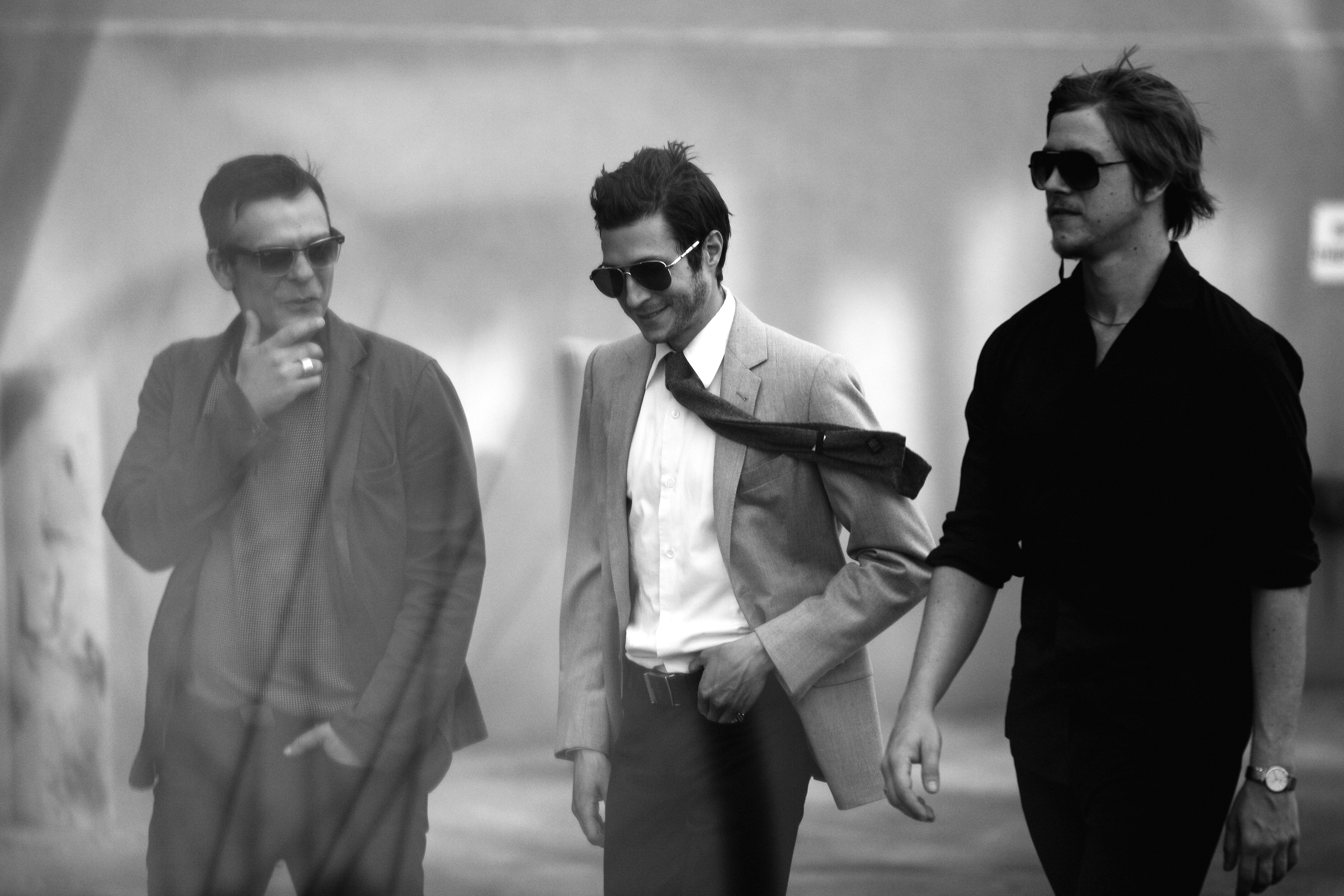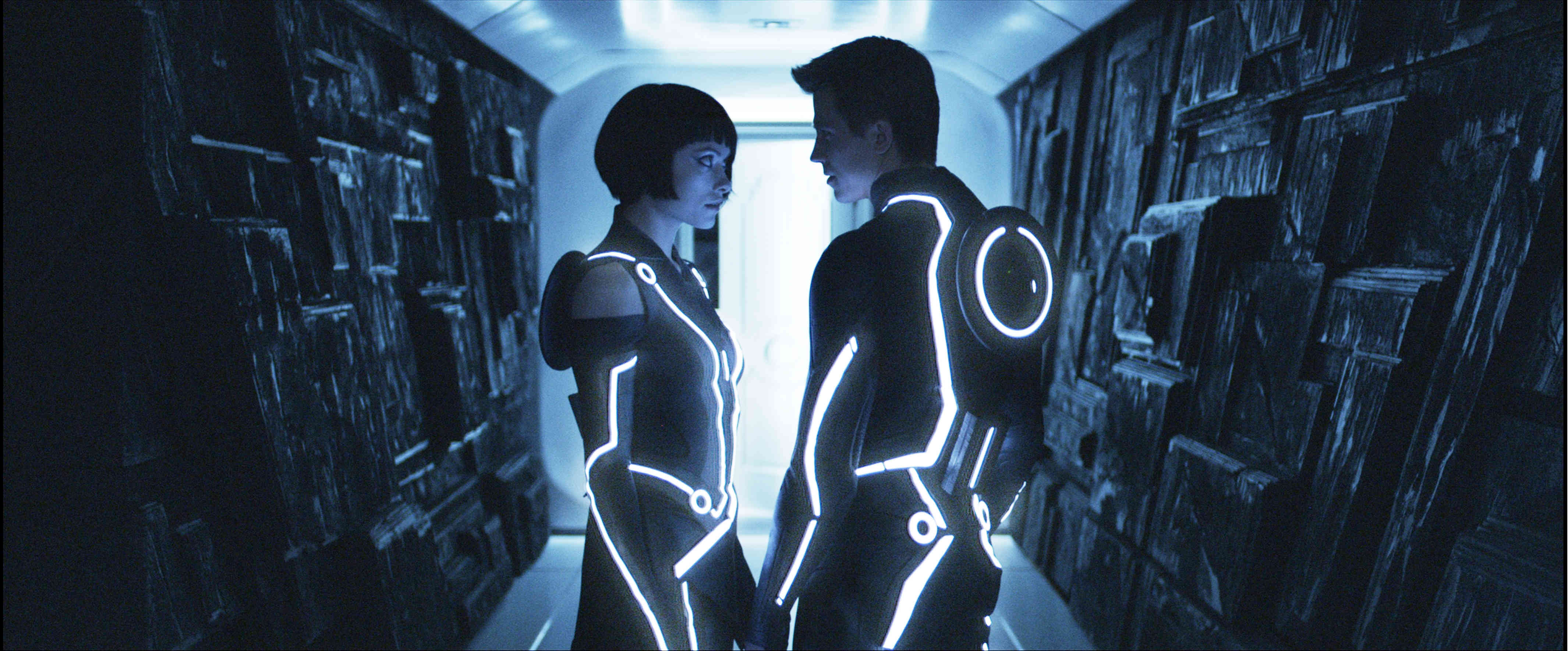Early this year, Interpol parted ways with founding member Carlos Dengler – the bassist who had been with the band since their humble New York City beginnings, and who had stayed with them up until (and through) the recording of Interpol’s fourth, self-titled album, but left at a short time after to pursue other musical interests.
Early this year, Interpol parted ways with founding member Carlos Dengler – the bassist who had been with the band since their humble New York City beginnings, and who had stayed with them up until (and through) the recording of Interpol’s fourth, self-titled album, but left at a short time after to pursue other musical interests. Although his spilt with the band was, they say, amicable, it’s still a curious question as how Interpol are adjusting to life as a trio: especially since they are known for telling interviewers that the relationships between members are the most important part of the band.
“It’s definitely been a change,” guitarist Daniel Kessler relates of Interpol’s new era, “although the presence of Dave Pajo (from Slint and Papa M) and Brandon Curtis (of Secret Machines), who have been playing on stage with us, made it easier. We’ve just done about four weeks of shows around the ‘States and Canada, and the crowds have been very enthusiastic and welcoming. There have been some great reactions to the new material, and I feel like we’re doing well as a band. I think you adjust with what is real and what’s in front of you, which is playing shows and playing music, and that’s how you acclimate to the whole situation.”
Interpol’s new album is as dark and noisy as anything they’ve done since 2002’s Turn On The Bright Lights. It’s so dense that, even after a number of listens, you find yourself picking up on little details – guitar noises and spooky background vocals – that didn’t seem to be there before. As Kessler tells it, the band planned it this way from the start. “We wanted to use different colours from those we’d used in the past, new instrumentation,” he says.
“I had a desire to make something much more detailed than we had in the past, with a very strong story, and it was the same for the rest of the band.
“On your first listen, you might have one impression, but by your fifth, you’ll hopefully have a completely different impression, that’s informed by all the little details that you missed the first time around,” he continues. “It’s not necessarily an obvious record to make in this day and age, when everyone has a short attention span and the safest thing to do is to load up the front of the record with the catchiest songs. We’ve never been that kind of band though; we’ve been an ‘albums’ band from day one, and I think if anyone has any kind of interest in us as a band, they’ll know that we’ve always been that way.”
The record is self-titled, which is always a strong statement for a band to make. “You know, it just felt kind of like the right time,” Kessler replies, when asked why Interpol decided to go with a self-titled moniker. “We had a discussion one day, in the middle of writing the record, and it was the only title that we put out there that had some traction, that sounded pretty interesting to everyone.
“We all felt like it was a bit of a statement, and it made sense, in that we felt we were writing a very strong record, where every song had its own story and made a statement – the music speaks for itself. The record itself is quite cohesive, it’s very much an Interpol record, and we really didn’t feel the need to put anything else on top of that.”
A life-long guitar player, Kessler started piano lessons a year or two ago, and has found his musical world opening up as a result. “I’m very much a bastard guitar player,” he says, “I don’t think too much about it; I just do it by feel. When I started taking piano lessons, I was determined to have respect for the instrument, and learn it in – quote-unquote – the ‘right’ way. I figured it was time to extend my palette, and learning the piano was a great way to do it. The piano is a great tool – it offers a new, wider way to write songs.”
Indeed, album centrepiece Try It On is the first Interpol track to be built around piano instead of guitar, and the change of instrumentation suits them. Kessler recorded the piano at his house before bringing it in to present to the rest of the band, who jumped instantly. “We didn’t have to labour too hard or too long over that song,” Kessler explains. “Everyone found their parts very quickly, and Paul (singer/guitarist Paul Banks) felt very natural just walking up to the microphone and singing. Sometimes you get a song that fits like a glove for the whole band, and that was one of them.”
Has this given Kessler a taste for writing piano-based songs? “I’m definitely very curious about it,” he laughs.
Since their earliest releases, Interpol’s music has been inextricably tied up with the city of New York – from the track NYC, with its “subway she is a porno” imagery through to the Natural History Museum shots that graced the cover of third album Our Love To Admire. Just how important do the band feel that the city is to their music? “It’s hard to say, because we’ve written every song in New York City, so at this point in time, it’s hard to know what the band would be like outside of that,” Kessler tells.
“Early on, learning how to write in New York and finding the concentration to do so was an adjustment for us, but it’s part of us now, to the point where I don’t know how much of what we do is Interpol, and how much of it is New York subconsciously influencing us with its many gifts.”
Talking about the music is all very well, but while we Kessler on the line, there are other burning questions to be asked – specifically concerning matters of sartorial elegance. It seems to be that, whenever Interpol are photographed, they are always impeccably dressed – are band members required to stick by some kind of dress code? “Hmm,” Kessler says, taking the question a little more seriously than was intended. “I think it’s just an individual thing, truthfully. We’ve never had a band meeting about how we should dress or what standard of elegance we should set, but nobody’s going to say anything if someone comes one day not dressed to the nines or looking photogenic. It’s just something we have in common individually, more so than not.”
The band’s style of dress may not be deliberate, but with the slicked-back hair and aviators that drummer Sam Fogarino has been rocking lately, it seems he’s actively trying to turn himself into Mad Men’s Don Draper. Is that in fact the case? Kessler laughs at this suggestion. “Sam’s always been quite a chameleon,” he says, “but his default hairstyle is probably the one you’re speaking of – the pomaded, slicked-back style, which is how he had it when I met him twelve years ago.
“I think that’s just Sam really… everything else is going back and forth, experimenting.”
INTERPOL headline the sold out FALLS FESTIVAL along with The National, Klaxons, Sleigh Bells, The Soft Pack, Washington, Joan Jett, Public Enemy and heaps more bands, plus arts, comedy and the ever-excellent, mind bending Village from December 28 – January 1. For all info check out fallsfestival.com.au. They also play a sold out sideshow at The Palace on January 7 with Bridezilla – hope you got tickets, as this will blow your goddamn mind. INTERPOL’s brilliant fourth album, the self-titled Interpol is out now through Shock.







